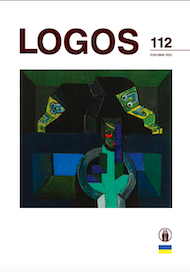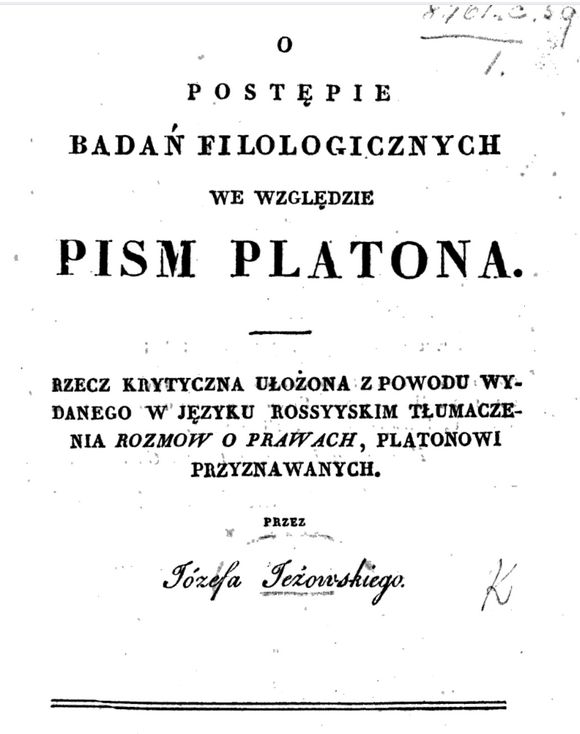A Paper on Vilnius’ Plato Scholar in a Lithuanian Journal

In “Logos” (issue 112), a Lithuanian journal, a paper was published on Józef Jeżowski (1793-1855) and his assessment of a Russian translation of Plato’s Laws. Subtitle of the paper, Classics scholar from Vilnius and his Plato between Germany and Russia, or Italy and Lapland, stems from Jeżowski’s deliberations on the future of classical and Platonic studies on the outskirts of Europe.

Who was Jeżowski? A partly forgotten figure among excellent scholars in the humanities, who were affiliated to Vilnius University in the first decades of the 19th century, an expert in classical languages and literatures, a scholar recognised for his edition of Horace’s Odes, an outstanding student of G. E. Grodek, moreover, a founding member of the Philomath Society, and a friend of A. Mickiewicz. Considering today’s political borders, his life’s path encompassed three countries, Lithuania, Russia and Ukraine, though in the 19th century Jeżowski was a Pole and a citizen of Russian Empire.
In a word, Jeżowski’s assessment of a translation of Plato’s Laws, produced by a Russian scholar, V. Obolensky, was not favourable, though somewhat superficial. Jeżowski, however, was rather focused on expressing his neo-classical manifesto rather than on a fair and insightful evaluation of the Russian text. His work bore a long title, which could be translated as follows: On the Progress of Philological Research Concerning the Writings of Plato. A Critical Piece, Composed Due to a Publication of the “Dialoues on the Laws”, Attributed to Plato. This study was actually addressed to Polish reading audiences, yet it was published in Moscow in 1829, during his years of exile in Russia. Jeżowski’s most important argument in his criticism was a complete lack of Obolensky’s references to German scholars, whose merits were considered by Jeżowski too significant to be passed over in silence. In his criticism, he was nevertheless optimistic, hoping that even in the most inhospitable circumstances it is possible for the humanities to flourish, and hard work can transform Lapland-like academic desert of Russia into blossoming Italy-like scenery, to which he compared German scholarship.
Considering the fact that Jeżowski was born in Uman and died in vicinity of Kaniv, both places being located in today’s Ukraine, and considering present war, Russian aggression on Ukraine, the paper was dedicated by the author to his fellow Ukrainian historians of philosophy.
Recent commentaries